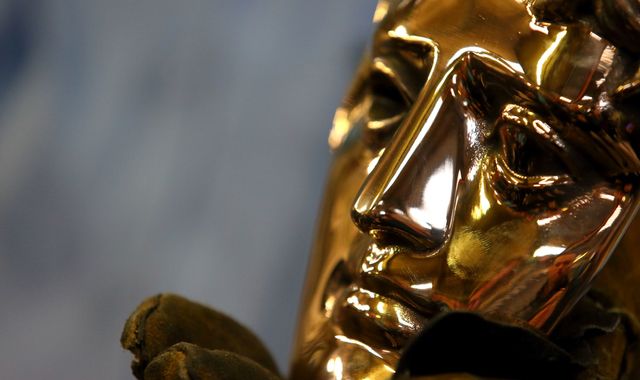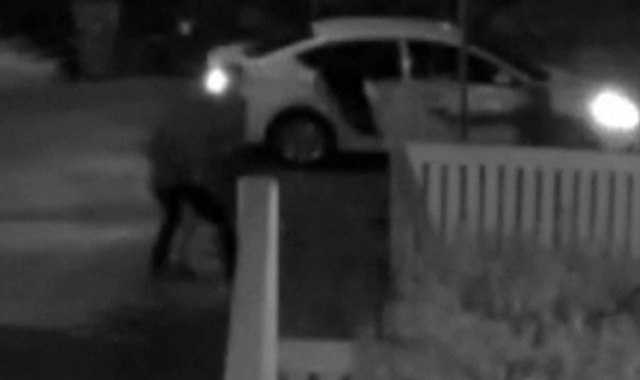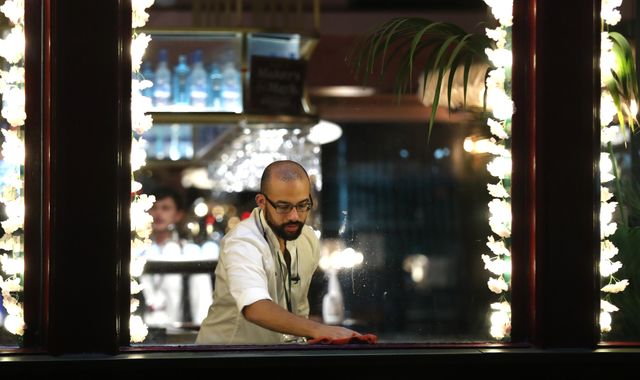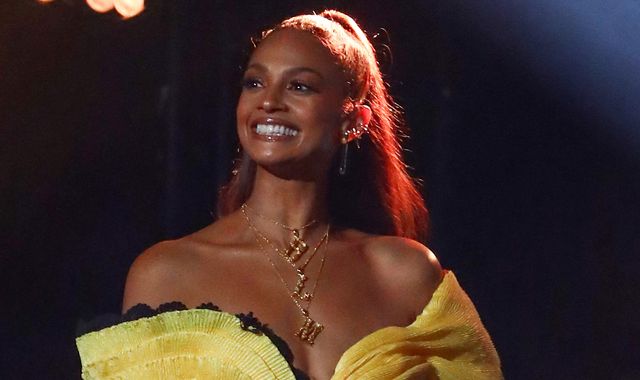Bafta reveals rule changes following #BaftasSoWhite diversity row
Written by News on 24/09/2020
Bafta has announced a major shake-up of its film awards but says it can’t guarantee there won’t be a repeat of this year’s all white and all male shortlists.

The British Academy of Film and Television Arts has made over 120 changes after it came under fire for the lack of diversity at its 2020 awards.
Marc Samuelson, the Bafta film committee chair, told Sky News: “This is not about guarantees or quotas, this is about creating a level playing field.”
He said the point of the changes was to ensure a broader range of films were viewed by voters, but that ultimately, they would all be judged on merit alone.
All 20 nominees in the acting categories at this year’s Baftas were white and the directors were all male prompting Prince William – the president of the academy – to call for urgent change.
A Sky News analysis of BAFTA nominees across nine of the main categories, including best film, director and the acting categories, found that progress had been slow over the last 10 years.
Krishnendu Majumdar, Bafta’s new chairman, said the academy spoke to over 400 individuals and groups in its review, discussing the use of quotas to guarantee a diverse set of final nominations.
He told Sky News: “Overwhelmingly people said we don’t want to receive a Bafta because of who we are, our gender or the colour of our skin. We want our work to be seen fairly and we want to win on merit.”
The rule changes include adding at least 1,000 members from under-represented groups, making films available to members for longer and changing campaigning to make it fair for all regardless of a movie’s marketing budget.
Bafta has also created three rounds of voting, making it compulsory to watch all films on the longlist in each category.
To ensure the work of female directors is considered, movies from 10 male and 10 female directors will be judged by a jury who will then come up with a final list of nominees.
Samuelson said part of the problem last year was that some brilliant performances and great direction didn’t find their way through to being nominated, and it was all about giving movies a fair chance.
He told Sky News: “The problem which we are addressing is that there are probably 150 films in contention and its incredibly hard for them all to be seen.
“By creating a middle round it means we can concentrate that large number down to perhaps considering 15 films, all of which have to be seen, which means a wider range of films should end up being nominated.”
Majumdar said it is important for the whole industry to change and not just Bafta.
He told Sky News: “Representation matters so much, people need to see themselves on the screen and we are particularly keen that a variety of diverse voices and performances are seen and then the nominations will come on merit.”
In another move aimed at ensuring greater diversity in its awards, Bafta has been applying the British Film Institute’s diversity standards to its two main categories since 2019 and is considering including more in the future.
For films to be eligible for the outstanding British film and outstanding debut by a British writer, director or producer category, they need to meet at least two out of four standards.
:: Subscribe to the Backstage podcast on Apple Podcasts, Google Podcasts, Spotify, Spreaker
Those areas include on screen representation, inclusivity among key crew, opportunities and industry access, and developing underserved audiences.
The Oscars recently announced new rules for its best picture award modelled on these same criteria, five years after the #OscarsSoWhite campaign shook the Academy.
The 2021 Bafta awards will take place on Sunday 11 April when its new rules will come into force.
(c) Sky News 2020: Bafta reveals rule changes following #BaftasSoWhite diversity row







